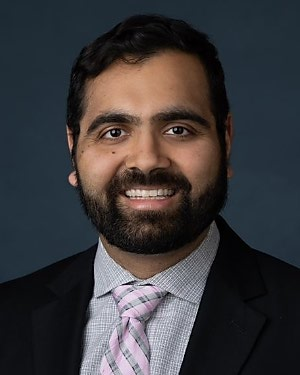Research Lab Results
-
Brain Tumor Laboratory
At the brain tumor laboratory, Henry Brem, M.D. and Betty Tyler, along with more than 350 trainees, have conducted scientific research, contributed to scientific literature, amended clinical practice, and illuminated new pathways for improving clinical outcomes.
The laboratory has advanced the understanding of gene therapy, angiogenesis, intracranial implantation of biodegradable polymers to treat malignant glioma, tumor genetics and proteomics, microchip drug delivery and drug resistance studies. Dr. Brem and his colleagues have designed and led many multi-institutional clinical trials to improve and expand the range of therapeutic options for patients with brain tumors. -
Brain Tumor Genetics Lab
Led by Dr. Chetan Bettegowda and Dr. Jordina Rincon-Torroella, our lab uses genetic analysis, biomarkers and patient outcome data to identify better ways to diagnose and treat disease. We research a variety of neurological conditions, including central nervous system tumors, trigeminal neuralgia and traumatic brain and spinal injuries. -
Chordoma Lab
Chordoma research is led by a comprehensive team including Gary Gallia, M.D., director of the Neurosurgery Skull Base Tumor Center. The laboratory focuses on developing new therapies for brain and skull base tumors, and has established the first primary skull base chordoma xenograft mouse model. The team is also exploring high throughput drug screening using the chordoma model, and the molecular pathways responsible for tumor maintenance and growth. -
Eberhart, Rodriguez and Raabe Lab
Utilizing a combination of tissue-based, cell-based, and molecular approaches, our research goals focus on abnormal telomere biology as it relates to cancer initiation and tumor progression, with a particular interest in the Alternative Lengthening of Telomeres (ALT) phenotype. In addition, our laboratories focus on cancer biomarker discovery and validation with the ultimate aim to utilize these novel tissue-based biomarkers to improve individualized prevention, detection, and treatment strategies. -
Minimally Invasive Neurosurgery Lab
Directed by Alan R. Cohen, M.D., Carson-Spiro Professor of Neurosurgery, Oncology and Pediatrics, the laboratory is focused on developing novel instruments and approaches to enhance the safety and efficacy of neurosurgical procedures. Current investigations include work in microsurgery, endoscopy, image guidance and robotic surgery. A cadaveric skills lab offers training in neurosurgical techniques. -
Amit Pahwa Lab
The Amit Pahwa Lab conducts research on a variety of topics within internal medicine. Our most recent studies have explored misanalysis of urinalysis results, urinary fractional excretion indices in the evaluation of acute kidney injury and nocturnal enuresis as a risk factor for falls in older women. We also investigate cancer diagnostics and treatments. In this area, our recent research has included studying cutaneous shave biopsies for diagnosing primary colonic adenocarcinoma as well as growth inhibition and apoptosis in human brain tumor cell lines using selenium.
-
Brain Cancer Biology and Therapy Lab
The goal of the Johns Hopkins Brain Cancer Biology and Therapy Laboratory is to locate the genetic and genomic changes that lead to brain cancer. These molecular changes are evaluated for their potential as therapeutic targets and are often mutated genes, or genes that are over-expressed during the development of a brain cancer. The brain cancers that the Riggins Laboratory studies are medulloblastomas and glioblastomas. Medulloblastomas are the most common malignant brain tumor for children and glioblastomas are the most common malignant brain tumor for adults. Both tumors are difficult to treat, and new therapies are urgently needed for these cancers. Our laboratory uses large-scale genomic approaches to locate and analyze the genes that are mutated during brain cancer development. The technologies we now employ are capable of searching nearly all of a cancer genome for molecular alterations that can lead to cancer. The new molecular targets for cancer therapy are first located by large scale gene expression analysis, whole-genome scans for altered gene copy number and high throughput sequence analysis of cancer genomes. The alterations we find are then studied in-depth to determine how they contribute to the development of cancer, whether it is promoting tumor growth, enhancing the ability for the cancer to invade into normal tissue, or preventing the various fail-safe mechanisms programmed into our cells.






